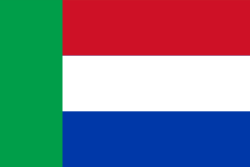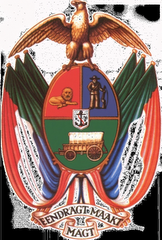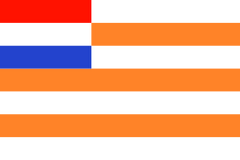Russian Agents Plot to Steal German Military Technology
By Holger Stark
Russian intelligence agents have recently been trying to steal German military technology with an intensity unknown since the end of the Cold War. But the spies who have been arrested so far have got off scot-free -- thanks to their diplomatic immunity.
AP
The Russians allegedly want to get their hands on blueprints for Eurocopter's Tiger combat helicopter.Vladimir Vozhzhov thought he was on safe territory as he waited in his Salzburg hotel on June 11. After all, the 50-year-old Russian citizen had been commuting between Moscow and Vienna for many years. But this particular visit to Austria took an unusual turn.
Austrian police officers arrested Vozhzhov around 7:00 p.m. They confiscated €13,000 ($17,483), two CD-ROMs and one USB flash drive. The police officers took him to Vienna's Josefstadt prison along with an Austrian military officer thought to have cooperated with Moscow. Vozhzhov is suspected of working as an agent for the Russian military intelligence service, the GRU.
A German citizen -- Vozhzhov's contact man, known only as Werner G. -- was also temporarily arrested, by Germany's Federal Criminal Police Office (BKA), in the course of the same operation. Werner G. is an experienced helicopter pilot who flew for the EADS subsidiary Eurocopter, whose Tiger model is considered one of the world's most modern combat helicopters.
Vozhzhov is said to have offered the German as much as €20,000 ($26,895) over the years in return for internal company documents and civilian operating manuals from the Franco-German high-tech company. The secret blueprints of the combat helicopter were what the Russian was really after, the investigators believe.
A Hostile Act
For years, German investigators and intelligence agents have been engaged in a clandestine defensive battle against Russian spies. But this time their measures resulted in a scandal. Austria's ambassador to Russia, Martin Vukovich, was summoned to the Russian foreign ministry in Moscow. Putin's diplomats issued an official statement branding the arrest a "hostile act" that caused "damage" to the relations between the two countries.
And yet the Salzburg case is only the most spectacular example so far out of an entire series of attempts by the Russian intelligence agencies to steal German military technology. The GRU has been especially active, attempting to recruit informers in the German military and in military companies with an intensity unknown since the end of the Cold War, as two other spy scandals show.
Alexander Kuzmin, a GRU agent with accreditation as a consul at the Russian general consulate in Hamburg, had to abruptly leave Germany in December 2004. Germany's domestic intelligence agency, the Federal Office for the Protection of the Constitution, had caught him red-handed using a member of the German military as a source. In the course of 22 meetings in southern Germany, Kuzmin had purchased classified German military documents for about €10,000 ($13,449). The documents mainly concerned long-distance radio communication and weapons systems.
The diplomatic row between Moscow and Berlin had barely calmed down when the cover of another alleged Russian spy was blown: Alexander Parfentiev, a diplomat officially accredited as part of the staff of the military attaché at the Russian embassy in Berlin.
The Federal Office for the Protection of the Constitution had shadowed Parfentiev for months, observing his meetings with a German military officer from whom he purchased classified documents. But the German officer had only appeared to have gone along with the deal; in fact, he had gotten in touch with the Federal Armed Forces Counterintelligence Office (MAD).
On March 10, 2005, while on the way to a clandestine meeting in Berlin, Parfentiev was stopped on the street by officers of the Federal Office for the Protection of the Constitution and accused there and then of spying for the GRU.
Tit For Tat
The following day, the German government summoned the Russian ambassador and presented the diplomat with an ultimatum: They gave Parfentiev seven days to leave the country, threatening to create a diplomatic scandal if he failed to do so.
The Russians struck back. First they complained to the chancellery about the "ill-mannered style" of the Federal Office for the Protection of the Constitution's agents. Then they withdrew their spy from the country, but avenged themselves using the tit-for-tat approach typical of intelligence agencies: Half a year later, the Kremlin extradited the deputy German military attaché at the German embassy in Moscow.
NEWSLETTER
Sign up for Spiegel Online's daily newsletter and get the best of Der Spiegel's and Spiegel Online's international coverage in your In- Box everyday.
The cases of Kuzmin and Parfentiev, who both enjoyed immunity thanks to their diplomatic status, were settled discreetly between Germany and Russia. But the situation is more complex in the case of Vozhzhov. Although he was an accredited member of Russia's trade mission in Vienna during the 1990s, he was not carrying a diplomatic passport when he was arrested. During questioning, he claimed he had participated in a meeting of the United Nations Office for Outer Space Affairs (UNOOSA) as an employee of the Russian Federal Space Agency (RKA). He also stated that his relation to the German was simply one of personal friendship.
However, a request by Germany's Office of the Federal Prosecutor that Vozhzhov be transfered to Germany had to be rejected by the Austrian ministry of justice last Thursday -- because an expert opinion swiftly produced by the UN Legal Counsel in New York concluded that every participant at the conference enjoyed diplomatic immunity. Vozhzhov was handed over to the Russian embassy the same day.
But, without immunity, the alleged spy will not be able to show his face in either Germany or Austria in the future. The European arrest warrant is still in effect -- and Vozhzhov's German friend Werner G. has already admitted having leaked company documents.
http://www.spiegel.de/international/europe/0,1518,490759,00.html
Wednesday, June 27, 2007
Subscribe to:
Post Comments (Atom)







No comments:
Post a Comment